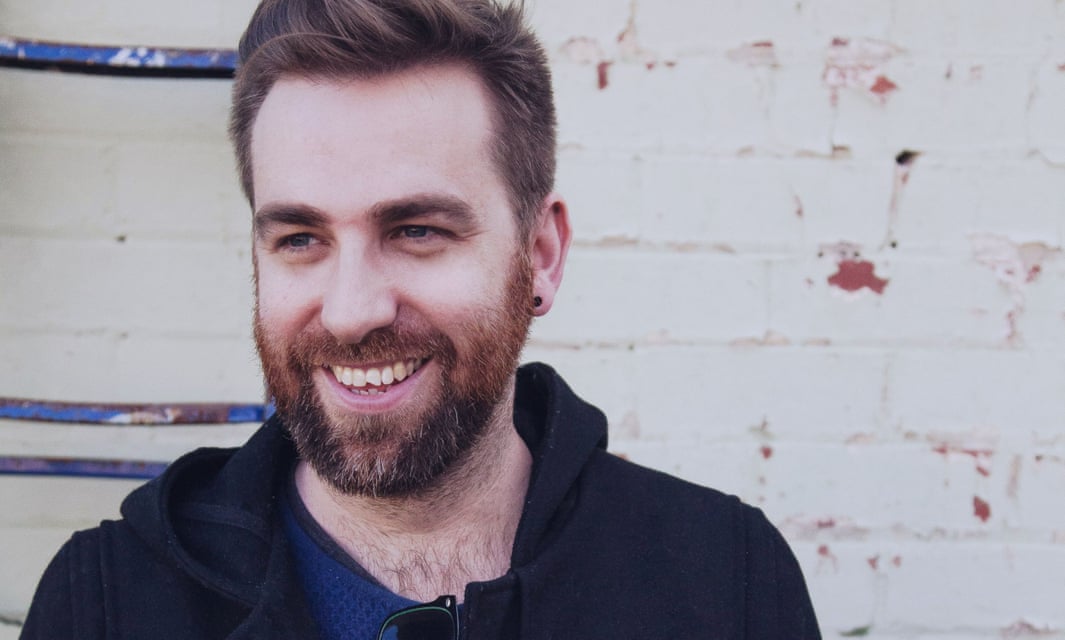On the roll call of Australian musicians with a political bent, Josh Pyke’s name doesn’t come up that often. While the Sydney singer-songwriter considers himself a political person, he generally shies away from tackling it directly in his work.
“My music has always been a vehicle for thrashing out the stuff that’s messing with me personally,” he says.
So when Pyke voices concern about the proposed cuts to the ABC and the arts industry, you know there is a real problem: “When you start cutting funding from things like the ABC,” he says, “you start to get a homogenised, creative culture because only mainstream things get funded – and fringe stuff gets sidelined.”
While Pyke doesn’t qualify as a fringe artist, he did come up through the indie route. Ten years ago, he signed to boutique label Ivy League Records, releasing an EP called Feeding the Wolves, featuring the infinitely catchy Middle of the Hill. Without support from the government-funded Triple J, APRA and other industry bodies, he says, he probably wouldn’t still be writing and performing today. “If we value our creative culture, then our government is the body that needs to support that. It’s as simple as that.”
Pyke has since released four albums, featuring the hits Love Lies, The Lighthouse Song, The Summer, and The Beginning and the End of Everything, and picked up two Aria awards along the way. He’s just released his fifth, But For All These Shrinking Hearts, which debuted at No 2 on Aria’s album charts.
The album’s curious title reflects another collision between personal and political. It came, Pyke explains, from a line of poetry he jotted down while on tour in London for his last album: “You are a shadow held aloft in a world less vast but for all these shrinking hearts.”
When he wrote it, he was feeling disillusioned with the world. “It feels like everyone’s hearts are shrinking a bit, at a time when we should be more open hearted,” he says. Pyke has been trying to work through that disillusionment. “Process those thoughts and find the good in them.”
The Sydney artist embraces what can sometimes seem like an old-fashioned approach: writing about things that really matter to him.It’s his songs’ authenticity – that overused, over marketed word – that snag at the listener’s emotions. While he shrouds ideas in imagery and metaphor, he has come to terms with using his own experiences as material. “I want to put my personal life into my songs. I’m not a pop singer, I’m not writing songs about stuff that I don’t care about. If I was, I don’t think I could be bothered doing that as a job.”
Now with two young sons, Pyke built a home recording studio a few years ago, to be around more forschool runs. He discovered the structure and routine helped him to write, although admits “it doesn’t stop the fact that writing a good song is still about waiting for lightning to strike. It’s creating an environment where you are more open to those things. And in the meantime you muck around.”
He conjures up a bucolic picture of his boys tumbling into the studio after school to play on the drums, but admits songwriting can seep into the corners of his life. “The [songs] are on a loop in your head [and it’s] hard to think of anything else. If you are writing an emotional song, it’s hard not to take on those emotions.” It’s a struggle to balance: “When you have kids, you can’t do that, so you have to switch off.”
It’s only now, after a decade in the business, that Pyke says he feels established as a songwriter. Fresh from a Malcolm Gladwell reading spree, he identifies with Gladwell’s theory, expounded in his 2008 best-seller Outliers, that 10,000 hours of practice make an expert. While his songwriting process hasn’t changed much, he recognises when something is worth pursuing much sooner. “My instincts know what I consider to be the integrity of the song is. It’s what I feel passionate about, when I feel a little bit mad and emotionally fraught when I’m writing it.”
Given his lyrics are so heartfelt, it’s surprising to learn that Pyke used a mumble track when recording the new album. It’s a technique he learned about from Wilco lead singer Jeff Tweedy, who essentially sings gibberish while recording song’s melodies, then translates them into lyrics. For Pyke, it’s a way of accessing his thoughts in a different way. “Your brain is never actually random. Your conscious brain is always a couple of steps behind your subconscious brain,” he says, adding, “I try not to explain it too much because I enjoy the process so much, but it’s more like interpreting a dream.”
One thing he is happy to speak out about is Busking for Change, a regular concert series he created in 2009 to raise money for the Indigenous Literacy foundation. He remembers being at an international festival that year, staying in a lavish hotel and feeling a karmic imbalance. “It’s not like I don’t think I deserve what I have achieved, because I have worked really hard. But I wanted to do something to even the scales.”
The foundation works to increase literacy levels by supplying first language and English books to remote Indigenous communities. “It’s such a good, noble thing that they do. Everything they do is with the blessings of the elders of the communities and they do a bloody good job,” he says.
Seems the personal and the political aren’t so far apart after all.
- Josh Pyke’s But For All These Shrinking Hearts is out now
Published on Guardian Australia on 3 September 2015 as Josh Pyke: I’m not a pop singer, I write about stuff I care about



